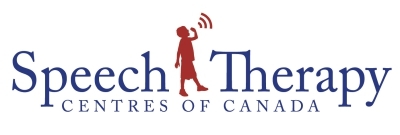The brain is an intricate part of our body, which controls our communication, our thinking, our movements, our moods and our senses. Understanding the complex and delicate interplay of the different parts of the brain can be quite challenging, especially for those of us who are not closely associated with medical disciplines. Understanding and treating brain injuries can be even more challenging.
After a brain-injury (e.g., as a result of a motor vehicle accident, related to a sports injury, after a fall, etc.), the initial few months are mostly spent on ensuring the patient is medically stable. Families feel relieved to have their loved ones back home with them when the patient is finally stable and transferred out of acute care medical settings. However, as family members and friends spend more time with patients who are recovering from brain injuries, they may start noticing changes in their personalities, moods and communication styles.
Patients with brain injuries (depending on the severity of the injury) may overtly appear physically fit or have minimal residual physical deficits. However, the underlying cognitive and communication deficits often persist and improve very gradually over time. Patients, family members and friends are left feeling perplexed and frustrated due to the lack of understanding of some of these covert cognitive-communication deficits, resulting in changes in the patient’s behaviour and communication styles.
Changes in behaviour or behavioural issues after a brain injury can result from many different factors. A sense of loss of the ‘old self’ and a lack of emotional adjustment with the ‘new self’ increase ones vulnerability to behavioural problems. Underlying cognitive and communication deficits further add on to this profile. Patients being in restrictive environments can often exacerbate behavioural issues. Pre-injury factors, which were reasonably managed prior to the brain injury, may spiral out of control after the injury. These may increase the patient’s stress levels and frustration. For example, day-to-day stress in the household, family arguments, relationship issues, etc. may become increasingly difficult to manage after a brain injury.
With respect to cognitive challenges, patients with brain injuries may feel disoriented and confused. Their difficulties with memory, planning and organization may increase their dependence on care-givers, in turn negatively affecting their feeling of self-worth and self-confidence. Following a brain injury, patients may be rigid in their thinking and may lack flexibility. This may lead to them misinterpreting social situations and responding inappropriately. They may also demonstrate poor judgement in making day to day decisions.
In some situations, insight or understanding of one’s strengths and challenges may be reduced. Thus, while family members can easily tell the difference in the patient’s behaviour, thinking and communication, this may not be as evident to the patient. Some patients may be withdrawn, depressed or have other forms of mental illness associated. They may have reduced empathy and sometimes a flat affect. Self-regulation of behaviour may be quite difficult for some after a brain injury and thus controlling emotions may become challenging. This may result in the patient being very easily irritable or agitated and impulsive. In some cases, family members may feel like the brain-injured individual is like a ‘ticking time bomb’, ready and waiting to explode. Such patients may thus demonstrate a restless or aggressive personality.
Challenges with communication skills are also quite evident after a brain injury and can affect one’s overall communication style. Patients may experience frustration with their communication interactions due to several reasons. They may be unable to clearly express themselves or may have difficulty thinking of the right words to use in conversations. They may have difficulty thinking of things to say, saying things in a socially acceptable way or in interacting appropriately with their communication partners. Some patients talk too much and disrupt the natural conversational flow, while others talk too little and barely contribute to conversations. Some may scream and demonstrate verbal outbursts, while others may lack the use of a filter and curse often. Patient’s overall communication style may come across as being too passive or aggressive, and thus, socially inappropriate.
Cognitive, communicative, emotional and physical changes after a brain injury will impact one’s overall behaviour, communication styles and ultimately social relationships. It is crucial for family members to understand the complex profile after a brain injury so they can best support individuals in need. It is very important to open channels of communication with treating medical staff and brain injury rehabilitation professionals to provide patients and family members with the much needed education and support.
A better understanding through education, along with immense patience in the recovery process will help family members cope with the changes in their loved ones following a brain-injury, allowing them to take on a supportive role to facilitate progress in the rehabilitation process.
photo credit: Saad Faruque via photopin cc
